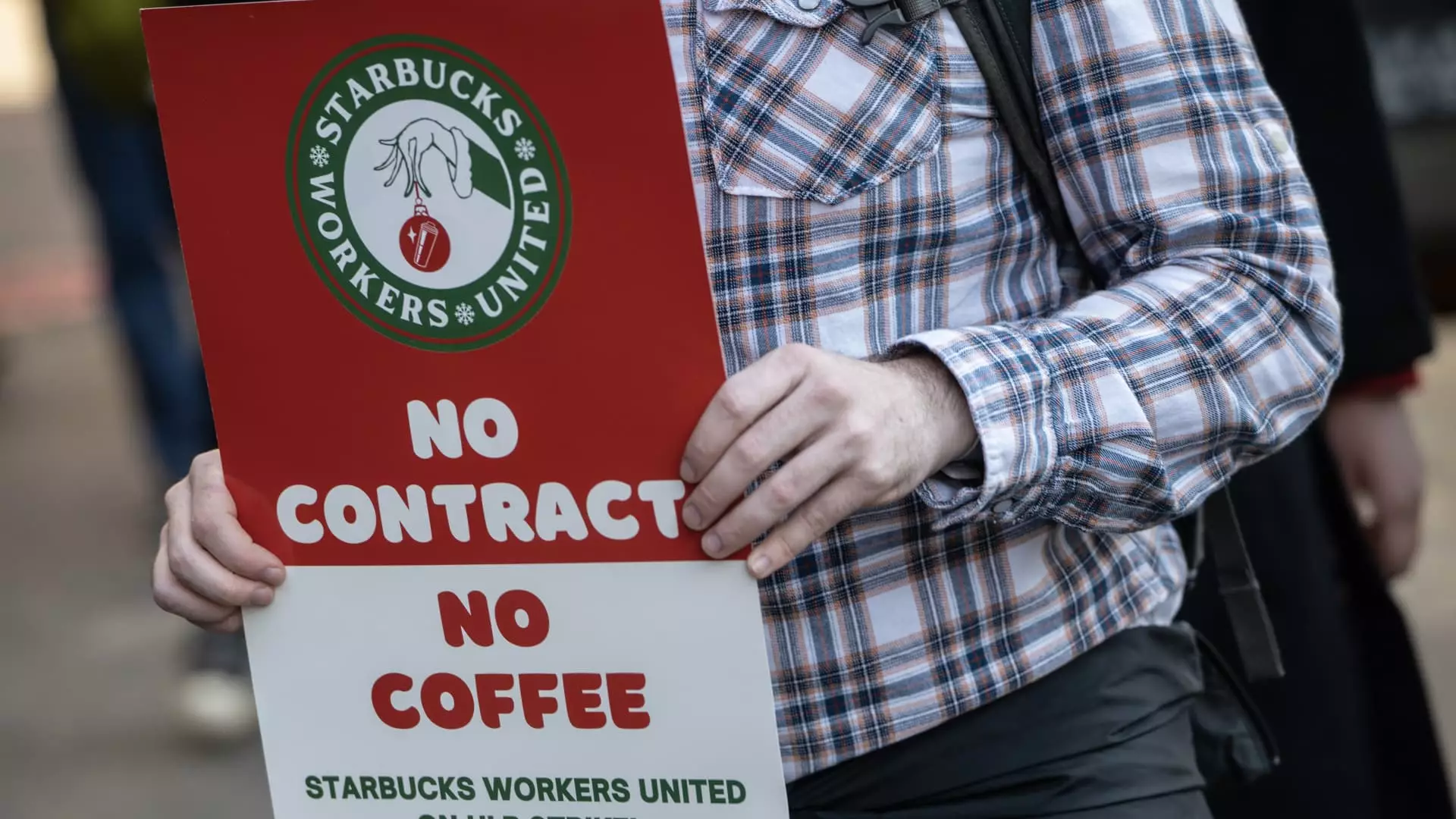As the holiday season approaches, tensions are mounting at Starbucks, where baristas in major cities like Los Angeles, Chicago, and Seattle are preparing to engage in a strike that could disrupt operations through Christmas Eve. The decision to strike is fueled by frustrations over inadequate wage negotiations and stalled progress on promised contractual agreements. The movement is spearheaded by Starbucks Workers United, which has expressed discontent with what they perceive as the company’s regression from prior commitments to improve conditions for employees. This dispute underscores a broader narrative within the retail and service industries, where workers are increasingly demanding not just fair wages, but transparency and accountability from their employers.
The timing of these strikes is particularly significant, coinciding with one of the busiest shopping periods of the year. With many consumers flocking to Starbucks for holiday beverages and seasonal merchandise, the strikes could result in longer wait times and limited product availability. For many Americans who rely on their local coffee shops during this frantic season, the disruption could be particularly frustrating. The situation poses a dilemma for the public: support the workers in their right to strike for better conditions, or succumb to the inconvenience of prolonged waits during a festive time. Such a predicament illustrates the growing tension between consumer experiences and workers’ rights, highlighting a societal shift toward valuing labor conditions alongside consumer convenience.
The relationship between Starbucks and its employees has oscillated between progress and conflict in recent years. Earlier this year, both parties seemed to find common ground, having developed a foundational framework aimed at fostering collective bargaining. However, as negotiations have stalled—with more than nine sessions yielding little progress—baristas have raised their voices in unison, advocating for immediate pay increases and better benefits. The union’s demand for a staggering 64% pay hike immediately, coupled with a 77% increase over three years, marks a significant escalation in their bargaining stance. Such demands reflect not only the realities of inflation but also a broader movement across industries advocating for fair compensation.
In response to the union’s demands, Starbucks has stated that any scheduled wage increases need to be sustainable. They proposed a mere 1.5% annual increase, which the union argues is insufficient given the current economic climate. The portrayal of these negotiations remains contentious, with Starbucks asserting they are willing to negotiate while simultaneously implying that the union’s premature decisions hinder collective progress. This back-and-forth paints a picture of a corporation struggling to balance profitability with fair labor practices amidst shifting consumer preferences.
The strikes at Starbucks are part of a larger trend, as workers at various major companies, including Amazon, are stepping forward to demand improved working conditions. The solidarity shown by workers at Starbucks alongside Amazon employees indicates a growing labor movement, particularly during critical sales periods. As these strikes unfold, they will likely serve as a catalyst for further discussions on labor rights and serve as a reminder of the increasing prevalence of workers advocating for their dignity and welfare in the workplace.
With the holiday shopping season upon us, the actions taken by Starbucks baristas may reshape public discourse around worker rights and corporate responsibility, potentially leading to a reassessment of how businesses are expected to treat their employees amidst changing economic realities.


Leave a Reply